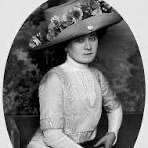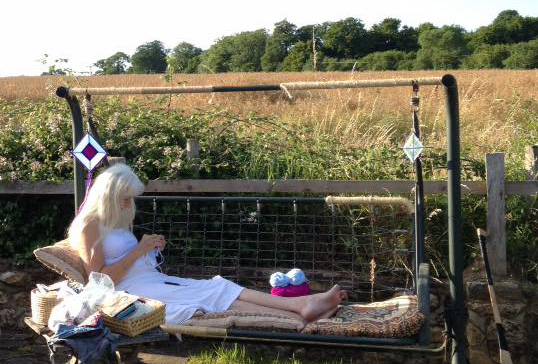
By John Newton
Around the time of my fourth birthday my mother became certain she had produced a writing genius and started to tell all her friends in great detail. It became apparent to me at the age of eight that Mother’s previous friends no longer called and scampered across the road or into shops to avoid forced recitations of my latest intellectual exploit.
I recognised these people as small-minded and at the age of ten felt ready to submit stories and articles to magazines and agents. At school I became known as a great English student and writer and knowledgeable at everything except maths, science, geography, history, languages, woodwork and games.
Nevertheless I gave teachers and fellow pupils the benefit of my research in all these subjects and many more until, at the age of fifteen the head confirmed my brilliance with a letter to Mother saying, “It seems we really cannot teach this boy anything he does not already know. He is wasting our time and therefore must leave this school.”
Encouraged by such excellent endorsement I settled to write and write and write. I continued until the age of eighteen, during which time editors and agents, whilst expressing admiration at my abilities and skill, found themselves unable to accept my work. I agreed with Mother that they were also small-minded and unable to trust the brilliance of one so young, fearing I may burn out early, so I set the many rejected works aside for inclusion in the inevitable Anthology once I became famous.
To gain insight in story structures and marketing I joined a writing school run by the famous Madame Sinskaya, a tall, stately lady topped by a well-constructed hairstyle that climbed a further six precarious inches. Strong and wide at shoulder and hip and dressed always in flowing silk, she moved with all the grace and care of a clipper ship entering harbour, her arrival at class preceded by a bow wave of expensive perfume.
I soon noticed that all students accepted by Madame Sinskaya – whatever their standard of education or writing skills – were well built young men. It seemed that girls or women who applied to join always failed the first interview.
Confiding one day that she had been born a White Russian gave me a story idea. Poor teaching at school left me unable to remember anything about that country but from her reference to colour I assumed that Russians came in varying shades from white through purple, yellow and magenta to black. So I plucked a likely shade from the rainbow and wrote a piece about Red Russians who overthrew the government and ruled by fear, forcing all White Russians out and enslaving the rest.
My story had an astonishing effect on Madame Sinskaya. Reading the piece aloud in class she wept and wailed, ‘Look at how this young man understands my country. Oh my dear boy, your research is perfect and you tell exactly what happened.’ To my surprise she hurried across the room, lifted me from my seat and pulled me into an enormous hug.
Previous warnings of Madame Sinskaya’s hugs left me unprepared for an experience akin to being strapped by steel wires to tall soft pillow. I cannot describe the strength of the woman’s arms. From then on she found every excuse to hug me in class, in the corridor and eventually in a small cupboard under the stairs. I ignored sarcasm from other students at gaining extraordinary high marks for whatever I wrote thereafter, recognising it as jealousy for genius. Eventually I left the school, feeling Madame Sinskaya could teach me nothing about writing although, for a time, I did miss that small cupboard under the stairs.
I settled in a garret to write and starve, both of which I found easy. I set all my work from Madame Sinskaya’s aside for my eventual Anthology and wrote several dozen novels all of which were received with great enthusiasm by agents and publishers who wrote rejection letters in glowing terms.
One especially appreciative publisher, referring to my short novel about bullying in a 19th century boys’ school, enthused at what he called, “The finest and most detailed example of high class plagiarism I have ever encountered. The idea of calling the book John Brown’s Schooldays is a master-stroke that underlines the standard of the whole work.”
I treasure this letter and plan to include it prominently in my Anthology alongside the actual book as truly wonderful approval of my work.
After a year, both garret and starvation lost appeal so I tried making money by writing advertising jingles and slogans. Based on memories of my grandmother, I devised a cleverly constructed marketing campaign for international drug companies and met with enormous success. First I set up a contact club called Hypochondria International with the slogan Hypochondriacs Of The World – Unite! Applications flooded in from all over the world, many with heart-rending letters pleading for vaguely described ailments to be understood.
This brought the idea that made my fortune – Hypochondriacs Reunited – which allows all those who think they are ill to meet like-minded people on the Internet to swap symptoms and convince themselves they are ill. The resulting worldwide sales surge of proprietary drugs – for which I previously negotiated a first class commission – brought riches to both the drug companies and to me.
A year or two after leaving garret and starvation I bumped into Madame Sinskaya as she navigated a street corner under full sail. She hove to and pulled me with wire hawser arms into one of her huge hugs, breathing husky welcome while covering my cheeks with damp kisses. ‘Oh my lovely boy, you were always my lovely boy,’ she murmured. ‘Come home and join me for tea.’ Strapped so tight to her pillow-soft front I found no breath to refuse so she whisked me by taxi to an enormous mansion, purchased, she said, with inheritance from her late White Russian Royal Duke husband.
It seems she now owned many millions in jewels and paintings recovered from Nazis or Communists or some such and had abandoned literary teaching. I found her attractions greatly improved by these new circumstances and sat late into the evening comparing bank balances.
Hers turned out far greater than mine so I mentioned only the garret and the starvation and agreed to her kind offer to be rescued and to stay and settle with her in this fine mansion. ‘You’ll have all the time in the world to write, my lovely boy,’ she gushed, ‘and you can help me look after all my money, because I don’t really understand it.’
So now I spend time being hugged but much more time secretly moving my drug company commissions round international banks and siphoning portions of Madame Sinskaya’s profits in the same direction, all the time blessing my luck and the writing skills that brought me to such comfort and security. I continue, without Madame Sinskaya noticing, to run both Hypochondriacs International and Reunited and write the occasional new novel.
But my main literary effort is directed at gathering together my large body of unpublished work into what will probably become the Largest Anthology In History.
I also plan a separate book containing my glowing and congratulatory rejection letters to show new aspiring writers what can be achieved through hard work and application. Madame Sinskaya – besotted as always – insists on financing my Anthology. The title? Ah yes, the title. My Anthology will be called, ‘Oh The Joys Of Writing’. Quite apt don’t you think?
This is one of the short stories from the book John Newton’s Short Stories Volume One, which is available on Amazon – Click to buy
*********************************************************************
Author Bio:
I’ve been writing books and short stories since the age of 9 with reasonable success. Two of my 14 books sold all round the world. My main successes have been WHITE SUNRISE a modern historical novel from 1902 to 1932, with the action taking place in Kenya and Germany, plus Hungary, Austria and Berlin during the Weimar Republic with my characters woven into the history of those countries, during and after World War One. Every item of history is impeccably researched and precise.
My second success is The KENYA POLICE – A LIVING HISTORY, a Trilogy compiled in three volumes of experiences of Policemen’s stories between the 1940s and 60s. I insisted that my Policemen avoided sending only blood and thunder I also asked Police wives and widows, sons and daughters to send in stories as well. This resulted in three Volumes that sold, to my astonishment, all round the world and brought in a lot of money that I insisted was donated to the Great Ormond Hospital for Children in London. The Trilogy has been turned into film scripts and is being considered by several producers of cinema and television series. I found my colleagues’ personal stories fascinating. I also asked wives, widows, sons and daughters to send me their experiences of being in Police families and received a series of excellent tales.
Both books are available on Amazon along with my 12 other completed books among a mixture of novels and non-fiction.
In addition have written around 500 short stories which are starting to appear in Amazon Books entitled “John Newton’s Short Stories Volume One”, based on my writing style of telling the stories through my characters. This works by each character being different with their own individual style of speech. I find this technique interesting and enabling me to present characters who sound like real people.
Contact Author:
Email: nbp.john@gmail.com





